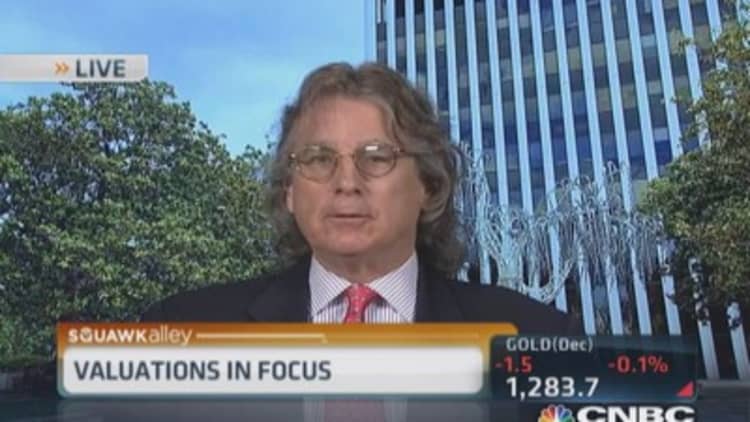
That valuations of some technology start-ups have swelled to billions of dollars has some market observers worried that tech companies could soon approach the frothy levels of 1999 and 2000, which ended when the dot-com bubble finally burst.
"It's almost as though the venture community is partying like it's 1999 all over again," Roger McNamee, a noted technology investor, told CNBC on Wednesday.
McNamee's comments came after Kleiner Perkins Caufield & Byers agreed to invest in Snapchat at a valuation of close to $10 billion. Alibaba might also be interested in investing in the mobile picture sharing service provider, according to published reports.
Meantime, smartphone payment provider Square is in the process of raising capital to a $6 billion valuation, according to published reports.
Read MoreSquare heads for $6B valuation: Sources
To McNamee, a managing director and co-founder of venture capital firm Elevation Partners, these investments are being made on the expectation that established tech companies, such as Facebook or Google, will acquire these start-ups to gain their massive reach. He noted that Snapchat currently boasts more than 100 million active users.
"That seems to be a threshold that has caused a lot of M&A and maybe that's what the venture people are looking at," McNamee said on "Squawk Alley." "It does strike me that expecting the public market to provide a great return from these valuations through an IPO is, to me, that seems like wishful thinking."
Even so, the retail investor shouldn't be alarmed by these inflated valuations, he said.
"This isn't really an issue for the broad market. A very small set of people are investing moderate amounts of money at really, very high valuations," McNamee explained. "This is not something that if you're a public market investor you need to lose any sleep over at all."
—By CNBC's Drew Sandholm


